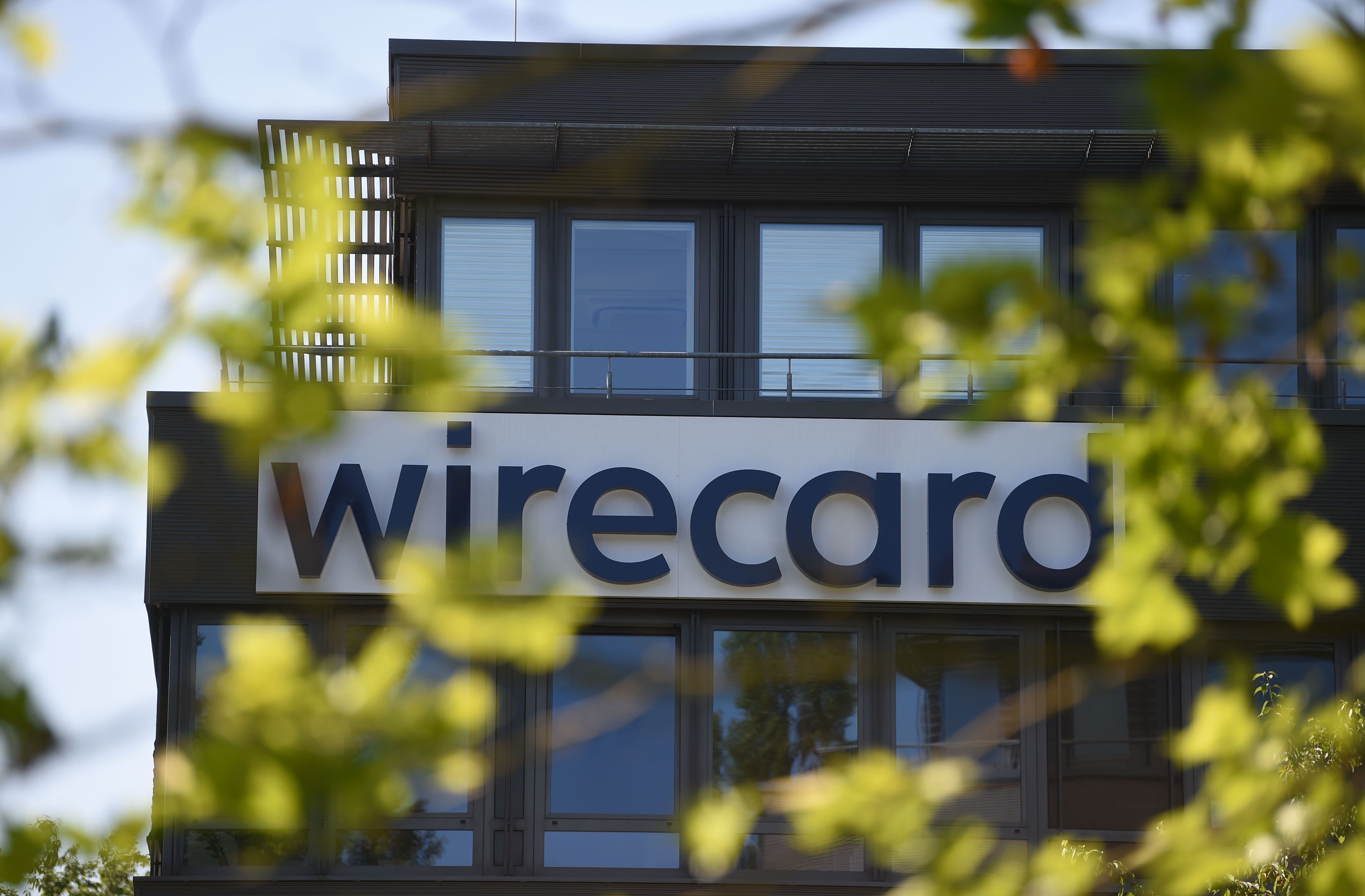
The Wirecard logo is seen at the payment company's headquarters in Aschheim near Munich, southern Germany, on June 24, 2020.
Christof Stache | AFP via Getty Images
Despite its spectacular descent into insolvency last month, Wirecard's share price has not yet hit zero.
Last week, Munich prosecutors raided the offices of the German payments giant, widening the investigation into the company to include fraud. It follows an accounting scandal and the arrest of former CEO Markus Braun.
When it filed for insolvency on June 25, Wirecard owed almost $4 billion to creditors. It admitted that $2.1 billion was missing from its balance sheet and probably does not exist.
Administrator Michael Jaffe said on Tuesday that more than 100 potential suitors had expressed interest in acquiring Wirecard's core business and holdings. However, Reuters reported Monday, citing a source close to the matter, that Jaffe is likely to raise only about 400-500 million euros ($451-564 million) for the remaining assets.
The company's stock plunged after the scandal came to light in mid-June, freefalling from 104.50 euros per share ($117.26) on June 17 to 1.28 euros per share on June 26.
However, last week the company vowed to continue business operations despite the insolvency and stated that "numerous interested parties worldwide have already expressed their interest in acquiring business units." Its shares rallied to close at 5.73 euros per share last Tuesday after the release.
It had looked briefly as though Wirecard would go the way of Hertz and JCPenney, which saw their share prices spike after going into administration as day traders cashed in on the historically low price in the hope of a quick win. However, the stock was hovering down at around 2.65 euros per share Thursday morning.
Short sellers 'not done yet'
Not everyone is hoping for the share price to rise, however.
While many of the hedge funds which took short bets against the stock have either closed out or reduced their positions, taking hearty profits from Wirecard's decline, some are still holding out for the share price to fall further.
Short-selling involves borrowing a security and selling it on the open market in the hope of buying it back at a later stage for less, therefore profiting from the depreciation of the stock's value. Wirecard has been a target for short-sellers, with German regulator BaFin implementing a two-month ban on shorting the company's stock in 2019 citing a "threat to market confidence."
Data from equity analytics platform Ortex Analytics showed that Coltrane Asset Management, Greenvale Capital, Capital Fund Management and Ennismore Fund Management either increased or opened new short positions in Wirecard last week, as the share price showed some upward momentum.
"For anybody that thought the Wirecard saga was over, it's clear that short sellers are not done yet," Ortex Co-Founder Peter Hillerberg noted.
Goodwill a red herring?
The former tech darling's business model involved managing cashless payments within a complex network of credit card companies, merchants and banks.
One notable area of its balance sheet which has come under scrutiny in recent weeks is the amount of the value attributed to intangible assets, such as goodwill, customer relationships and proprietary technology. Goodwill is the portion of the purchase price of a company over and above its net value, taking into account things like brand name and good employee relations.
As Wirecard's administrator this week began dismantling the company's assets for sale, those still invested in Wirecard will be hoping that the sale of these intangibles could reap rewards.
However, Carola Rinker, an independent balance sheet expert who has studied Wirecard extensively, told CNBC that investors still holding the stock may be hoping for too much on this front.
"In case of an insolvency, the goodwill cannot be sold. Imagine you have a bottle of water and you shake it - you cannot extract the bubbles out of the bottle, and that's the problem of the goodwill," she told CNBC via telephone last week. "You can remove the cap from the bottle, however, and you can sell it."
Rinker said that while the proprietary technology could be sold, the customer relationships may present a further issue, with recent reporting by the Financial Times suggesting that the company actually relied on a very small number of customers for the majority of its genuine sales volumes.
Failing the ESG test
Joshua Kendall, senior ESG analyst at Insight Investment, identified Wirecard's case as a prime example of how ESG — or environmental, social, and governance — risks can have a material impact on the creditworthiness of a company. Insight's ESG analysis model, used to screen companies being considered for fixed income investment, gave Wirecard the lowest possible rating in the fourth quarter of 2019.
"We always want to have exposure to management and it is important that we hold them accountable for their actions, that we have the ability to scrutinize them on some of their business activity," Kendall told CNBC via telephone last week.
"With Wirecard, we always felt that our engagement opportunity was not as significant as it could be with other companies. I believe they had only one or two bonds outstanding and as a result, it probably wasn't a frequent issuer enough for us, meaning there might be some liquidity issues with some of those bonds."
"some" - Google News
July 09, 2020 at 02:33PM
https://ift.tt/3eewl0f
Why some investors are holding onto Wirecard shares even after insolvency - CNBC
"some" - Google News
https://ift.tt/37fuoxP
Shoes Man Tutorial
Pos News Update
Meme Update
Korean Entertainment News
Japan News Update
Bagikan Berita Ini















0 Response to "Why some investors are holding onto Wirecard shares even after insolvency - CNBC"
Post a Comment